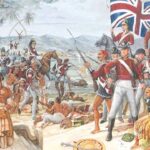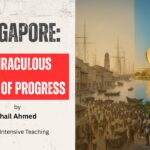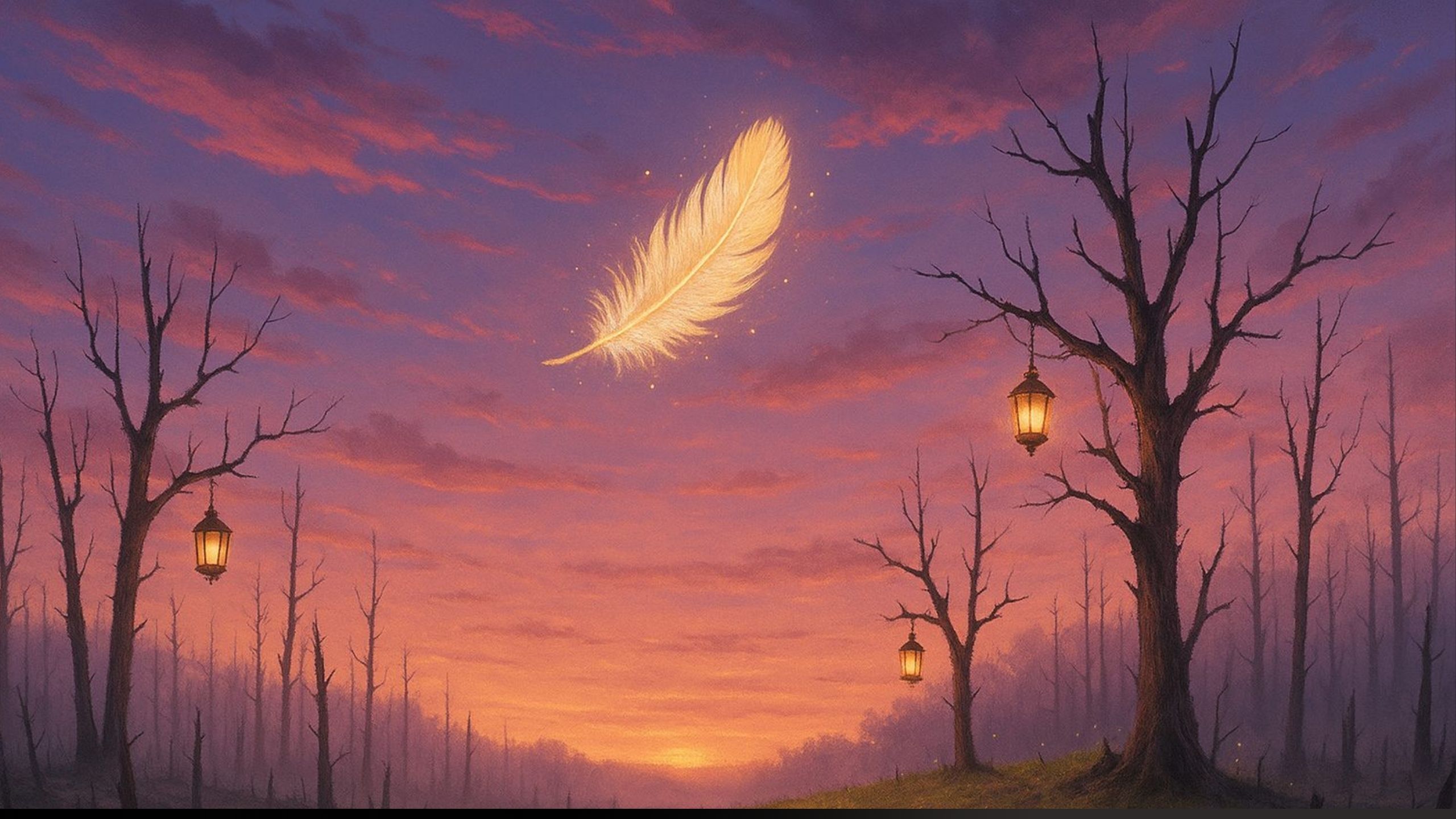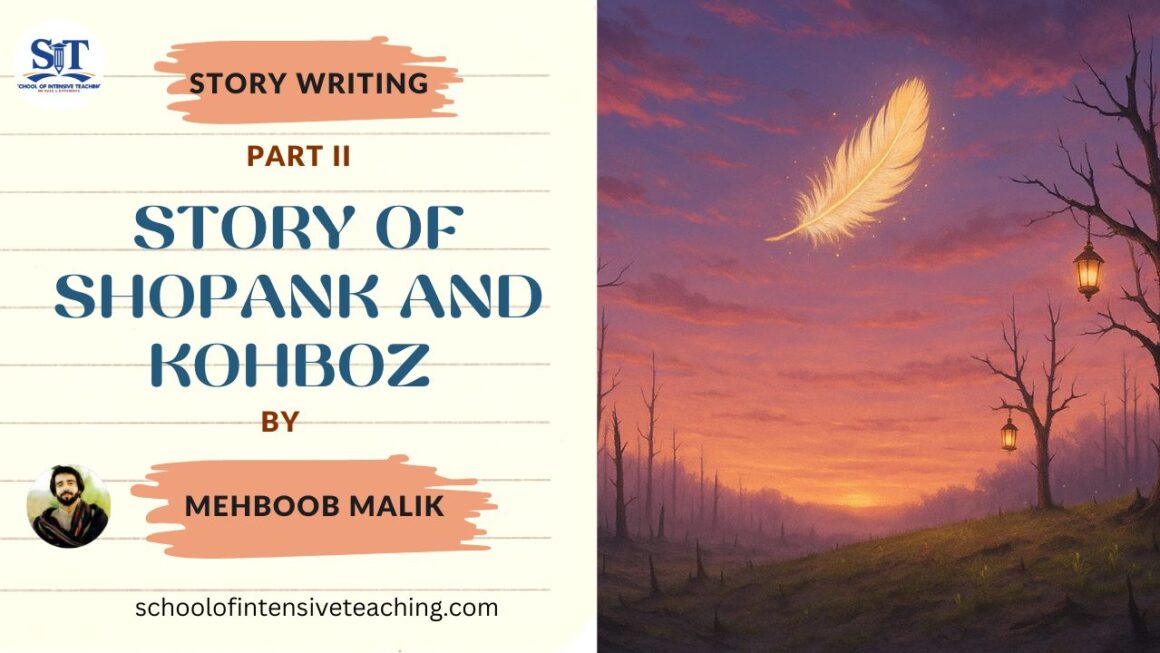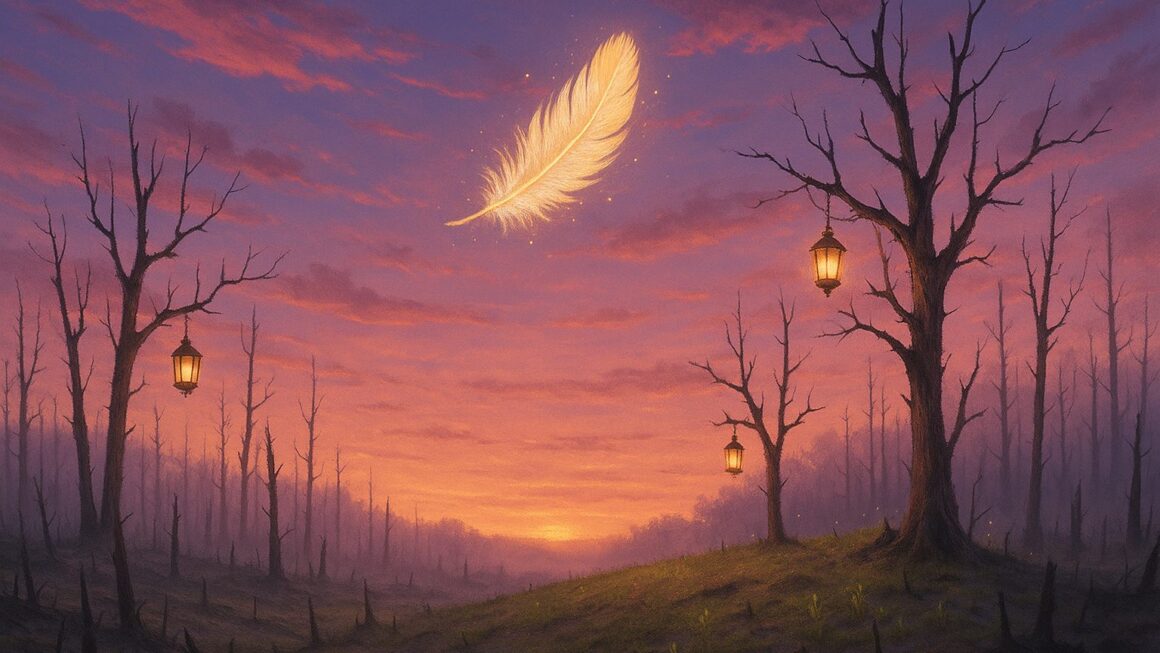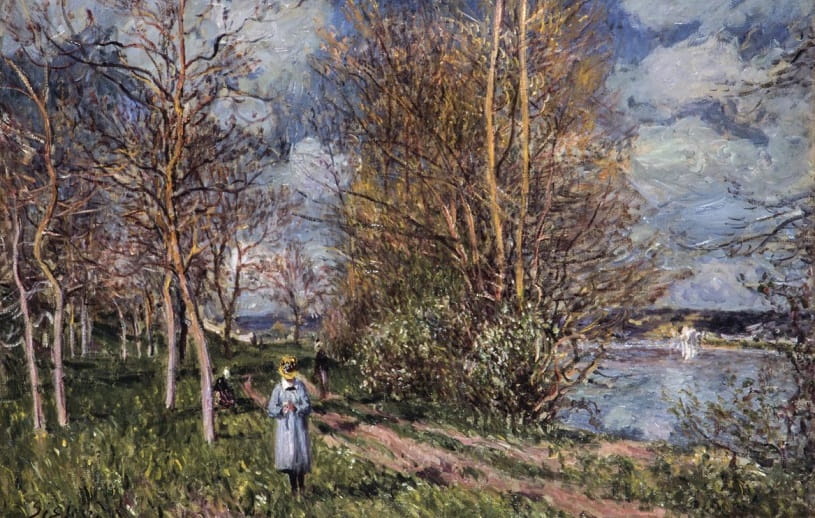In the final part of the story, the vulture hunts, and the little world feeds on trees with blood. And, there remains one absence heavier than all, Shopank. He is lost—not in the streets, on the beaches, but lost in the crowd. And no one knows where has he gone. His love that once bloomed now rots. His story does not march but morns.
The sky above the blue mountains and green gardens had forgotten how to shine. The nights that were once freezing are now scary and bloody. The once fresh mornings are now riddled with grief. The birds have no courage to sing, no mother pats the back of her child to send to school with a prayer. But amid all this, one absence feels equal to them. Shopank, the mad boy who once laughed with mountains and forests, is no longer there. He is not missing just from the ground, but from the very heart of the little world. The wind no longer holds his questions. The shadows do not reflect his shape. And the people who once ignored his silence now do not remember it, as if Kohboz had erased him from their minds. The same is true of Kohboz.
Now Kohboz has done, with sending her final message, short, sharp, and disguised in grace. It came not like a slap, not like a scream, but like a silent bullet piercing through the heart of something pure. “Say ‘Allah Hafiz’ with a smile, so I should eradicate you.” That was it. She closed Shopank’s whole world in a dark room, like missing pieces. No poetry! No fights! No care! Just silence!! …No hope stitched inside. Just “Allah Hafiz” that asked him to smile while she shut the last door. It was the most honest hypocrisy; being asked to smile for your end. And Shopank, whose heart was stitched together with her kindness, found that her softness now burned more cruelly than any harshness ever could.
After that message, Shopank never hit behind. He also didn’t cry because he was less than tears, and tears fell for those who had recovered. He simply stabilized himself, as if someone had closed the light in his chest. He deviated from the broken cities, lost the valleys, touched the cities and echoes the ruins, not looking for him, but somewhere he would not be strangled in search of her absence. He took her name inside his breath. She had created a world in it, so huge, so alive and so cruel that he can’t live inside it or escape from it. He was very destroyed for a living, was very haunted to leave.
The city that was once his dream has now become a forbidden land. He could not set foot there, not because of fear or shame, but because every street reminds him of her intoxicated gaze, and every colour reminds him of her smoky eyes and connected eyebrows. Kohboz was not just a girl he loved. When she appeared from the ajer door, the yellow shone through the walls. For him, a fairy was calmly walking through the street. She was the garden he buried his dreams in. And now that garden has turned to ash. He no longer belongs anywhere. Not to the crowd. Not to the quiet. Not even to himself.
And the vulture! True! The vulture, the old blood-sipping monster, had grown terrifyingly clever. What is more surprising about vultures is their iron hands in velvet gloves. It no longer needs to hunt. It simply wears the clothes of compassion and calls itself “FRIEND.” It planted wolves in sheep’s clothing who cry fake tears in front of the mothers. It raises slogans with the youth. It even stands beside the children as they march, whispering false promises. And worst of all, it is now fed by those who swear they were against it.
Shopank still walks, somewhere between deserts, dried rivers, and bustling cities, asking the wind where Kohboz went and how she is. Now Kohboz believes he stopped asking and ceased to search for her. NO! That he only now lives in silence so deep, so sad, even his very closest have forgotten his name. But Kohboz, she remains untouched. Untouched, like an elusive dream, too precious to achieve. She carries his love not as a memory, but as a burden; she had politely said, ‘No!’ Her polite attitude now dances hand in hand with Shopank. But Kohboz, she stands between them like a wall too high for letters, too thick for dreams.
Right from the beginning, Shopank did not hate her. Even when she hurt him, he prayed and dreamt for her. Even when she erased him, he protected her seven-letter name. But love, when one-sided, becomes a grave that only one person is buried in. And Shopank was buried, not with soil, but with words callous, brute, barbaric and cruel. His dreams flew like thirsty birds, and his voice dissolved into winds no one listens to anymore. He wants nothing but his love. He does not even want answers. He just needs to breathe in a world where her silence cannot crush his chest.
Kohboz had been graceful, too graceful, too polite, too caring. The things which were not meant to be done, she did. She lifted him when he needed lifting, and holding him when he needed holding. Her goodbye to him felt like a funeral song. The song which was mourning for both the little world and Shopank. And somehow, that smile broke him more than a thousand piercing bullets of rejection. She was everything when the world was not kind enough, nasty, and savaging. And maybe that was the tragedy; he fell in love with a girl meant for not love, not for completion, not affection, but for destruction.
Now, Shopank is not in the crowd. He is not seen in the morning, in the mountains, at night, even in the day. He is not in the chants or the photos. With the sound of snapping, he disappeared. Yes! He disappeared. Maybe into the wind. Maybe into a cave without a pronouncement. Maybe in a dark room. Or maybe, into a place where Kohboz’s name cannot echo in every thought anymore. However, children still remembered him not by name but by the silence he had left behind. It speaks louder than the loudspeakers. It weeps more than the bottle feeder children. His absence just becomes a symbol.
And somewhere, under the grey sky of a land that had lost its soul, Kohboz sits quietly and smiles with the wind. Says how she destroyed his truth. The truth of his love. And, then, how she made his conditions more dreadful than the little beautiful burning world. She never knew why she had done this at all, but deep down she had the trembles when the wind whispered his name—not with regret, not with longing, but with an ache that she had lost someone who would have burned the whole world to see her smile.
Now, the vulture is not sipping blood. It is eating the little world. Slowly, gradually, steadily and fully. And the worst part? It is doing so with the help of those who pretend to be with the children, while secretly sharpening the vulture’s beak. But by resorting to these heartbreaking actions instead of reality, now the vulture is digging its own grave with its claws. Among these, betrayal, lies, and Janus-facedness live not outside anymore; they breathe within. The Shopank is the missing soul, the voice gone unheard, the heart that had no home left.
This is the end. The end of the two ways of living: one is primed for love, and the other is depleted with blood. As dawn breaks through the blood-red sky and brings colour to the smoke-stricken mountains, the children march not towards classrooms but toward chaos, holding the faces of the disappeared, screaming in voices too young to carry such pain. No door is left unknocked, no shoulder is left unattended, no corner of the world is left unawares, and yet no option is left for waiting. And besides this, the vulture’s Clocktower smells, a dangerously pungent smell, yes, a smell of blood. The foundations of Clocktower are shaken not by power but by blood.
On the other hand, Shopank sobs, sobs like a camel torn in the jugular vein bleeding in the dark, his heart heaving under the weight of memories that will not die. He cannot sleep; he drowns, each night, in a pool of bloodied thoughts where Kohboz’s name echoes like a curse carved into his forehead. He sits, broken and bent, in the digital space where she once appeared, eyes wide open like wounds, waiting for a ghost that never comes. The wind brings no mercy but only the scent of her burning silence. He yearns not just for Kohboz, but for her shadow that only comes with her. His sobs are not tears; they are flesh-tearing from the soul. This is not sorrow. This is slaughter. This is abuse of love. And, this is where the end bleeds, bleeds. Believe me! It bleeds.
About the author:

Mehboob Malik
SIT Hub AlumnusMehboob Malik hails from Panjgur, Balochistan. He is a SIT alumnus and a former member staff. He is currently pursuing Sociology from UMT, Lahore.



